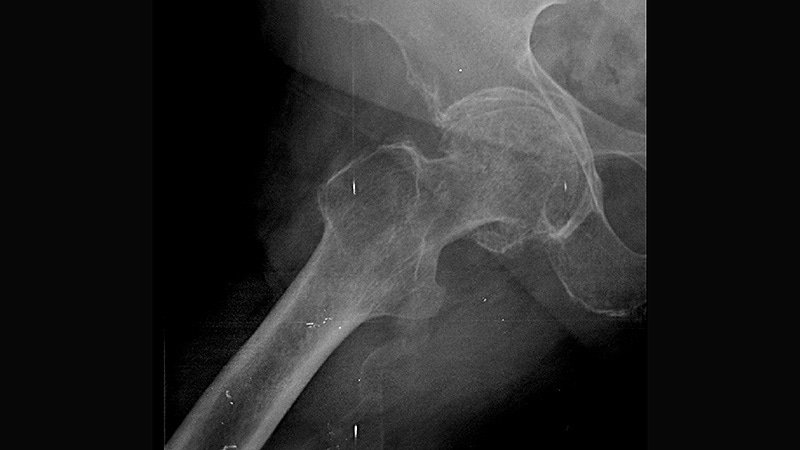A very-low-calorie diet and weight loss combined with exercise does not appear to offer any greater reductions in hip osteoarthritis (OA) pain compared to exercise alone, even in people who are overweight or obese.
Overweight and obesity are considered risk factors for hip OA, yet there are conflicting data on whether weight loss reduces the need for hip joint replacement, researchers wrote in their August 4, 2025, report published in Annals of Internal Medicine.
In this study, researchers randomly assigned 101 people in Australia with a BMI above 27 to either 1) a dietitian-supported ketogenic very low-calorie diet plus a home-based exercise program supported by regular physiotherapy consultations or 2) the exercise program alone for 6 months.
All the participants were aged 50 years or older, had experienced significant hip pain for at least 3 months, and had radiographic evidence of femoral or acetabular osteophytes and joint space narrowing.
Despite the very-low-calorie-diet group losing a mean 8.5% more body weight than the exercise-only group, the study found no significant difference between the two groups in the primary outcome of hip pain severity at 6 or 12 months.
However, both groups did show a clinically significant reduction in hip pain severity at 6 months: a 2-point reduction on an 11-point scale in the exercise-only group and 2.8-point reduction in the diet plus exercise group. More people in the diet-plus-exercise group achieved a clinically relevant reduction in hip pain severity at 6 months than in the exercise-only group.
The study also found that those in the diet group had greater improvements in hip-related quality of life at 6 months compared to the exercise-only group, which persisted to 12 months.
Physiotherapist and study co-author Kim Bennell, PhD, director of the Centre for Health, Exercise and Sports Medicine at the University of Melbourne, Australia, said while the association between weight and symptoms or progression was strong with knee OA, there hadn’t been many high-quality randomized controlled trials of weight loss for hip OA.
“The knee is not the hip; you can’t necessarily generalize results from the knee to the hip,” Bennell told Medscape. “We thought that it may not be as effective as you find at the knee because there may be different factors driving at the hip; biomechanical factors might be more important.”
Could the Results Direct Patients to Seek Surgery Sooner?
An accompanying editorial by rheumatologist Gillian Hawker, MD, of Women’s College Hospital in Toronto and exercise physiologist Kristine Godziuk, PhD, of the University of California, San Francisco, raised the question of whether the use of pharmacotherapies for weight loss, such as the GLP-1 receptor agonists, might influence outcomes through changes in body composition.
Bennell said further studies were needed to explore whether greater weight loss than was achieved in this study might have led to better outcomes and over a longer period.
Commenting on the findings, rheumatologist Nancy E. Lane, MD, endowed professor of medicine and rheumatology and director of the Center for Musculoskeletal Health at UC Davis Health, Sacramento, California, said hip OA was much more related to underlying structural abnormalities than other forms of OA.
“There’s no therapy that can make it better, because the hip joint, the shape of the hip — either the femoral head or the acetabular cup — is off and it’s worn out,” Lane said to Medscape. “There’s no therapy for osteoarthritis of the hip, once it becomes painful.”
While weight loss would help to place less stress on the joint, it is a much smaller issue than for other joints, and being overweight in and of itself is not a risk factor for hip replacement, Lane said.
“It was really important to know that this type of exercise and weight loss wasn’t going to have an effect on the hip,” she said, pointing out that this knowledge might help people with hip OA to get surgical treatment sooner, rather than being told to lose weight first. “But to be very clear, that that’s not the case in other joints, such as the knee, where these interventions make a difference,” she said.
The study was supported by the National Health and Medical Research Council, Australia. Several authors were supported by grants from the National Health and Medical Research Council. Information on author disclosures is available online with the study.
Source link : https://www.medscape.com/viewarticle/weight-loss-diet-not-needed-exercise-hip-oa-pain-2025a1000koo?src=rss
Author :
Publish date : 2025-08-04 21:05:00
Copyright for syndicated content belongs to the linked Source.
